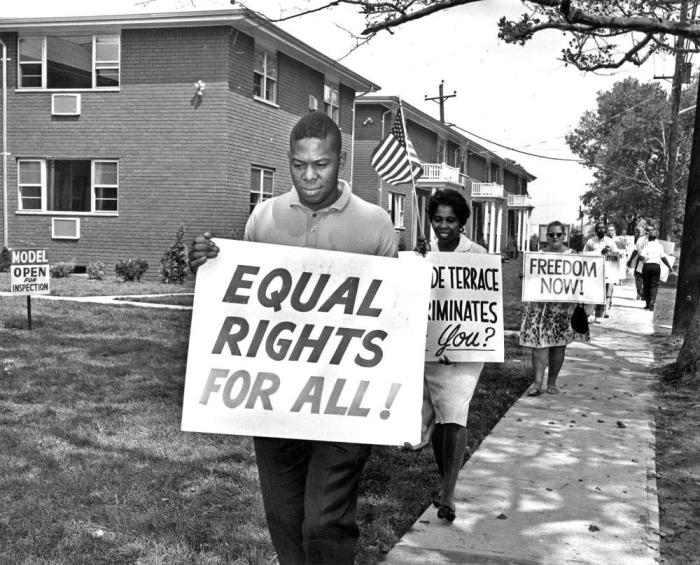Embarking on a journey through civil rights movement webquest answers, we delve into a profound chapter of American history, uncovering the pivotal events, influential figures, and enduring impact that shaped the fight for equality. This comprehensive exploration unveils the multifaceted nature of the civil rights movement, shedding light on its historical context, key players, and lasting legacy.
The civil rights movement, a transformative era marked by resilience and determination, left an indelible imprint on American society, influencing legal frameworks, social norms, and cultural perspectives. Through this webquest, we unravel the intricate tapestry of the movement, examining its origins, methods of resistance, and the profound changes it brought about.
Historical Context of the Civil Rights Movement

The Civil Rights Movement emerged as a response to centuries of racial discrimination and oppression in the United States. Its roots can be traced back to the abolitionist movement of the 19th century and the post-Reconstruction era, when African Americans faced systemic barriers to equality in all aspects of life.
Key events leading up to the movement include:
- 1863: Emancipation Proclamation issued, freeing enslaved African Americans
- 1865: Thirteenth Amendment abolishes slavery
- 1870: Fifteenth Amendment grants African American men the right to vote
- 1896: Plessy v. Ferguson ruling establishes the “separate but equal” doctrine
- 1909: Founding of the National Association for the Advancement of Colored People (NAACP)
- 1954: Brown v. Board of Education ruling declares school segregation unconstitutional
Social, political, and economic factors also contributed to the rise of the movement, including:
- Widespread poverty and unemployment among African Americans
- Jim Crow laws and other forms of racial segregation
- Lack of political representation and economic opportunities
- Emergence of a new generation of civil rights leaders
- Growing support for the movement from white allies
FAQ Resource: Civil Rights Movement Webquest Answers
What were the key events that sparked the civil rights movement?
The Jim Crow era, the Montgomery bus boycott, and the Brown v. Board of Education Supreme Court ruling were among the pivotal events that ignited the civil rights movement.
Who were some of the prominent leaders of the civil rights movement?
Martin Luther King Jr., Malcolm X, Rosa Parks, and John Lewis were influential leaders who played significant roles in the movement.
What were the main methods of protest used by civil rights activists?
Nonviolent resistance, including boycotts, sit-ins, and marches, were key methods of protest employed by civil rights activists.
What were some of the major legislative victories achieved by the civil rights movement?
The Civil Rights Act of 1964, the Voting Rights Act of 1965, and the Fair Housing Act of 1968 were landmark legislative achievements of the civil rights movement.
How did the civil rights movement impact American society?
The civil rights movement led to significant social, political, and cultural changes, including the desegregation of schools and public facilities, increased political participation by African Americans, and a heightened awareness of civil rights issues.
